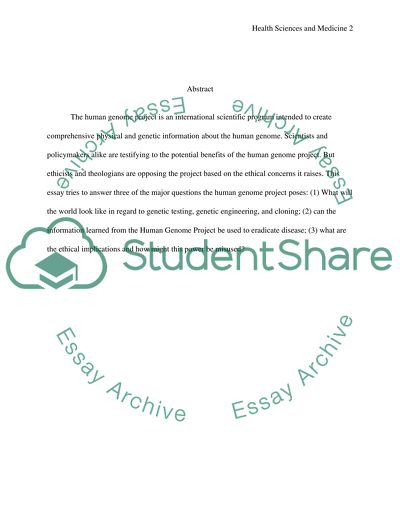Cite this document
(“The Human Genome Project: Challenges, Opportunities and Rthical issues Essay”, n.d.)
The Human Genome Project: Challenges, Opportunities and Rthical issues Essay. Retrieved from https://studentshare.org/health-sciences-medicine/1455944-future-world
The Human Genome Project: Challenges, Opportunities and Rthical issues Essay. Retrieved from https://studentshare.org/health-sciences-medicine/1455944-future-world
(The Human Genome Project: Challenges, Opportunities and Rthical Issues Essay)
The Human Genome Project: Challenges, Opportunities and Rthical Issues Essay. https://studentshare.org/health-sciences-medicine/1455944-future-world.
The Human Genome Project: Challenges, Opportunities and Rthical Issues Essay. https://studentshare.org/health-sciences-medicine/1455944-future-world.
“The Human Genome Project: Challenges, Opportunities and Rthical Issues Essay”, n.d. https://studentshare.org/health-sciences-medicine/1455944-future-world.


